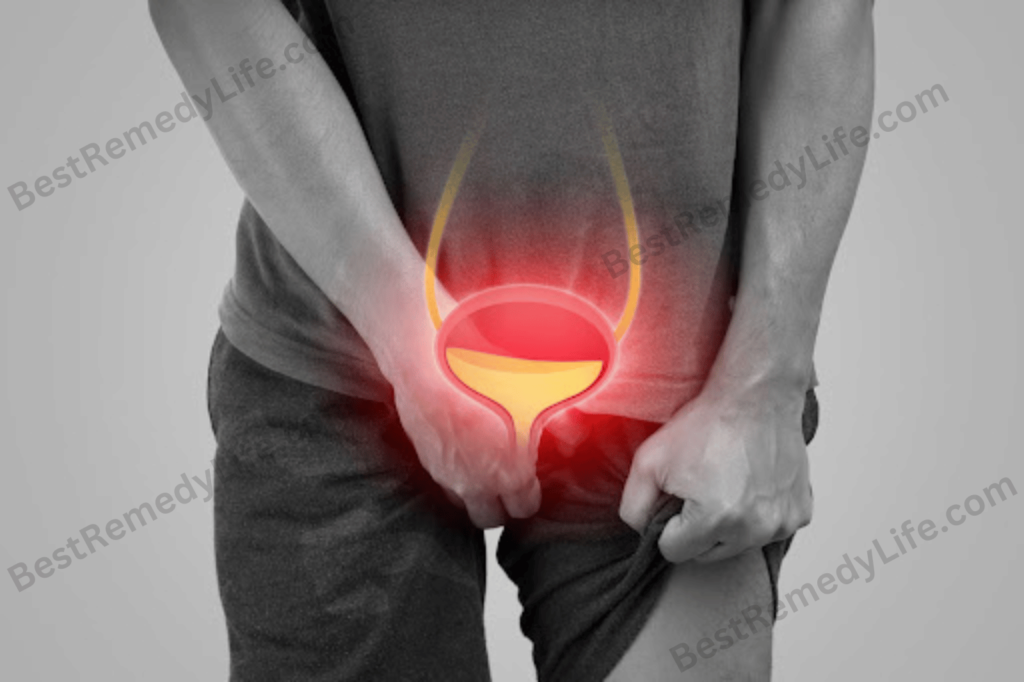Urinary Issues in Men: Causes, Symptoms, and Effective Solutions
Urinary problems are common among men, especially as they age. These issues can range from minor inconveniences to serious conditions requiring medical attention. Understanding the causes, recognizing the symptoms, and knowing the available treatments can help men take proactive steps toward maintaining urinary health.

Common Urinary Issues in Men
Several urinary issues affect men of all ages. Some of the most prevalent conditions include:
1. Benign Prostatic Hyperplasia (BPH)
- What it is: A non-cancerous enlargement of the prostate gland, which can obstruct urine flow.
- Symptoms: Frequent urination (especially at night), weak urine stream, difficulty starting urination, and incomplete bladder emptying.
- Causes: Aging, hormonal changes, and genetics.
- Treatment: Medications (alpha-blockers, 5-alpha reductase inhibitors), lifestyle changes, and, in severe cases, surgery (TURP, laser therapy). Additionally, natural supplements like ProstaVive (Visit Official Website) have been shown to support prostate health and urinary function.
- ProstaVive: Is A Powerful New Formula For Boosting Prostate Health Fast Visit here Official Website
Read Also: ProstaVive Price in USA: Deals Available Now!
2. Urinary Tract Infections (UTIs)
- What it is: A bacterial infection affecting the urinary system.
- Symptoms: Burning sensation while urinating, frequent urge to urinate, cloudy or foul-smelling urine, and pelvic pain.
- Causes: Bacteria entering the urinary tract, poor hygiene, holding in urine for long periods.
- Treatment: Antibiotics, increased fluid intake, proper hygiene practices. ProstaVive (Visit Official Website) may help support a healthy urinary tract by promoting natural antibacterial defense mechanisms.
3. Prostatitis
- What it is: Inflammation of the prostate gland, which can be acute or chronic.
- Symptoms: Pain in the pelvic area, painful urination, frequent urination, flu-like symptoms (in acute cases).
- Causes: Bacterial infection, stress, injury, autoimmune reactions.
- Treatment: Antibiotics (for bacterial prostatitis), anti-inflammatory medications, pelvic floor therapy, and lifestyle modifications. ProstaVive (Visit Official Website) is a natural alternative that helps reduce inflammation and support prostate health.
4. Overactive Bladder (OAB)
- What it is: A condition that leads to a frequent and urgent need to urinate.
- Symptoms: Sudden urges to urinate, waking up multiple times at night to urinate (nocturia), urinary incontinence.
- Causes: Neurological disorders, aging, bladder irritation, weak pelvic floor muscles.
- Treatment: Bladder training, pelvic floor exercises, medications (anticholinergics, beta-3 agonists), lifestyle adjustments. ProstaVive (Visit Official Website) contains natural ingredients that help improve bladder control and reduce urgency.
5. Urinary Incontinence
- What it is: Loss of bladder control leading to involuntary urine leakage.
- Symptoms: Stress incontinence (leakage during physical activity), urge incontinence (sudden urge to urinate), overflow incontinence (incomplete bladder emptying).
- Causes: Weak pelvic muscles, nerve damage, prostate issues, obesity.
- Treatment: Pelvic floor therapy, bladder training, medications, surgery (in severe cases). Taking ProstaVive (Visit Official Website) regularly can strengthen bladder muscles and promote better urinary control.
6. Kidney Stones
- What it is: Hard deposits of minerals and salts that form in the kidneys and can obstruct the urinary tract.
- Symptoms: Severe pain in the lower back and abdomen, blood in urine, nausea, frequent urination.
- Causes: Dehydration, high-sodium diet, genetic predisposition, obesity.
- Treatment: Increased water intake, pain relievers, and medical procedures (lithotripsy, ureteroscopy) for larger stones. ProstaVive (Visit Official Website) supports kidney health and helps prevent the formation of kidney stones naturally.
Read Also: ProstaVive Price in USA: Deals Available Now!
Prevention and Lifestyle Changes
While some urinary issues may be unavoidable, adopting healthy habits can significantly reduce the risk of developing them:
1. Stay Hydrated
- Drinking at least 8 glasses of water daily helps flush out toxins and prevents kidney stones and infections.
2. Practice Good Hygiene
- Maintaining genital and urinary hygiene reduces the risk of UTIs and prostatitis.
3. Regular Exercise
- Strengthening the pelvic floor muscles through exercises like Kegels can help prevent incontinence and improve bladder control.
4. Healthy Diet
- A diet rich in fiber, fruits, and vegetables while limiting caffeine, alcohol, and spicy foods can support urinary health. Adding ProstaVive (Visit Official Website) to your routine can enhance these benefits naturally.
5. Avoid Holding Urine for Too Long
- Regular urination prevents bacteria buildup and helps maintain a healthy bladder.
6. Routine Medical Checkups
- Regular screening for prostate health, kidney function, and overall urinary health can help detect problems early.
When to See a Doctor
While mild urinary symptoms can often be managed with lifestyle changes, it is essential to seek medical attention if you experience:
- Persistent pain or discomfort while urinating
- Blood in urine
- Difficulty urinating
- Frequent nighttime urination disrupts sleep
- Sudden loss of bladder control
Read Also: Prostavive Reviews (Does it Work) Is it Safe for Prostate Health?
Conclusion
Urinary issues in men are common but manageable with proper awareness, preventive measures, and medical care. Understanding the symptoms and causes can help men take proactive steps in maintaining urinary health and seeking timely treatment when needed. ProstaVive (Visit Official Website) is a natural solution that supports urinary and prostate health, helping men maintain optimal well-being. If you experience persistent or severe symptoms, consult a healthcare professional for an accurate diagnosis and tailored treatment plan.

